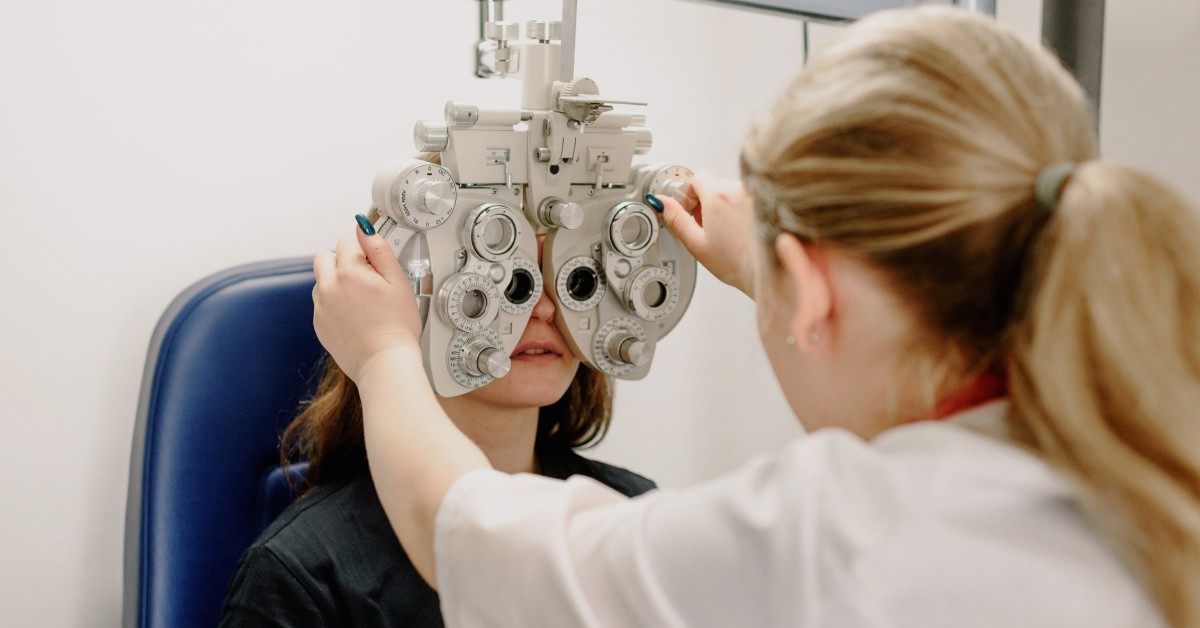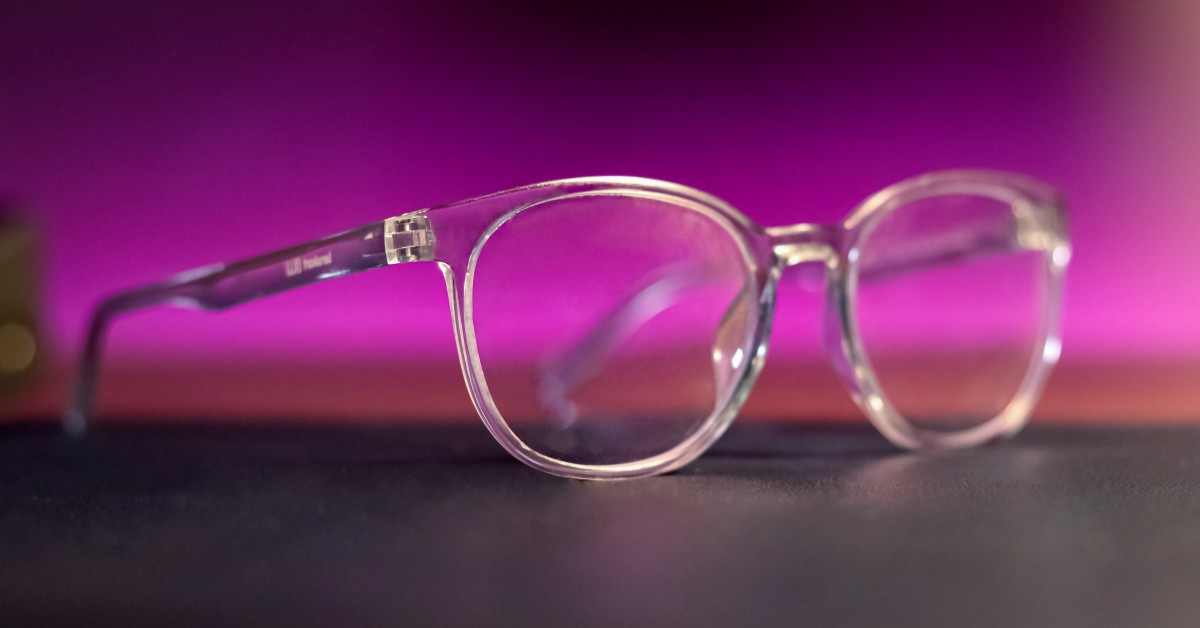
Why Become a Cornea and Contact Lens Optometrist?
Cornea and contact lens optometrists are highly educated practitioners; they [...]

Ingrid Bergman famously said, “Getting old is like climbing a mountain; you get a little out of breath, but the view is much better!” Miss Bergman was likely referring to a metaphorical view of life, since, as any geriatric optometrist knows, maintaining optimal vision in old age can be a challenge. Fortunately, these highly trained practitioners are on hand to treat a medley of ocular issues and help elderly patients maintain their quality of life.
For geriatric optometrists, this means focusing on age-related eye care with a special focus on ocular diseases and conditions that uniquely impact elderly patients. Eye exams for this senior population help identify chronic conditions, which vary widely and can include age-related macular degeneration, glaucoma, dry eye, diabetic retinopathy, presbyopia, and cataracts. These geriatric eye examinations can also detect such larger health issues as cardiovascular disease, hypertension, diabetes, and even some types of cancer. Because comprehensive eye exams are recommended even more frequently for elderly persons, these specialized optometrists often play an important role in the overall healthcare maintenance of their patients.
Success in geriatric practice requires a unique approach to treatment and setting. Practitioners may need to organize furniture in clinics and waiting rooms to accommodate walkers, wheelchairs, or unsteady gaits. This practice actually helps educate their patients on fall prevention. This is just one example of the important work geriatric optometrists perform to keep our elders healthy.
If you’re considering the field of geriatric optometry, it’s important to first ask yourself why become a geriatric optometrist? This article provides you with a better understanding of the following:
Geriatric optometrists may choose to specialize in caring for older adults for any number of reasons. Practicing optometry with the elderly has as much to do with improving their independence and safety as it has to do with their vision. Such work can be extremely rewarding, as these professionals can make a significant difference in their patients’ lives.
Specializing in this type of healthcare for elderly patients takes a particular type of practitioner. Geriatric optometrists have the empathy, patience, and sensitivity to take on often-challenging cases. Older patients more often require more than eyeglasses or contact lenses and, much like providers for pediatric patients, geriatric optometrists need to be prepared to discuss other age-related concerns during an exam.
An elderly patient may be more prone to experience specific eye conditions that come on slowly, without the patient noticing. Conditions as common as presbyopia—the stiffening of the eye’s lens with age—can mean driving becomes more difficult as glare, low light, and difficulty judging distance at higher speeds can slow reaction times and worsen visual judgment. This is just one of the many ways in which geriatric eye care differs from optometry and ophthalmology for the general population.
The need for geriatric practitioners of all kinds will grow considerably in the coming years. The Urban Institute reports that the number of Americans over 65 will more than double in the next four decades, reaching 80 million by the year 2040. This elderly population will need an increasing number of geriatric optometric practitioners.
Geriatric optometrists conduct comprehensive eye exams to look for age-related factors that contribute to vision loss or eye diseases. While their practice functions like that of any other optometrist, they move beyond the typical visual field tests, refraction and low vision care, visual acuity and eye function and mobility assessments to advise on health and eye problems that specifically impact an older age group. They also advise on related issues like driving, nutrition, exercise, and preventing falls.
Duties also include referring patients to ophthalmologists for glaucoma or cataract surgery, retina detachment repair, or help co-managing conditions related to systemic disease.
Geriatric optometry begins with a strong foundation in math and science. Undergraduate coursework often includes chemistry and biology classes as well as statistics. Not all OD programs require a bachelor’s degree, but many do. Regardless, you’ll need this foundation in order to take the Optometry Admissions Test (OAT). The OAT measures preparedness for OD programs in the US and Canada.
Once you’ve begun your Doctor of Optometry program (which typically takes four years to complete), you’ll find a carefully planned curriculum ahead of you. Year one lays the foundation of optometry work and introduces you to refractions, lensometry, acuity tests, and all the elements of an eye exam. You’ll also begin working with patients and doing lab work during this time.
Your second and third year deepen your understanding of ocular disease and pharmacology, as well as practice management and patient care. At the end of year three you’ll be ready to take your first board exam.
Year four includes field immersion. You’ll begin your clinical rotations in areas like primary care, specialty care, and advanced care. You’ll also have time to schedule an elective rotation to further explore specializations.
At this point you’ll be ready to take your final board exams, begin a residency, or apply for state licensure with your newly minted OD degree.
Most, but not all, optometry programs want to see strong math and science undergraduate work and a bachelor’s degree. With a four-year undergraduate degree, an OD potentially adds an additional four years of study before graduates can pursue licensing and certification to fully practice. Some students complete this OD in more or less time depending on course load. Some students choose to specialize in pediatrics or geriatrics, which can add an additional round of clinical rotations.
Each Doctor of Optometry program has its own list of prerequisites and requirements for applicants. Some schools may require only one calculus or statistics course. Others may require two; it’s best to research each program individually for specifics. The list of prerequisites often includes chemistry, organic chemistry, physics, biology, biochemistry, and English coursework. Most schools want documented shadowing hours with other ODs.
Curriculum details are also program-specific, but you can expect the program design to work like the curriculum outlined in the New England College of Optometry’s plan. You’ll learn about the development of vision, cell biology and anatomy, biochemistry, genetics, diagnostics, neuroanatomy, ocular disease, clinical reasoning, and pharmacology. You’ll also learn patient care, public health, and clinical practice.
Each state has a specific set of licensing requirements and scope of practice. The best way to find an accurate account of your state’s specific licensure requirements is to contact the state licensing board where you wish to practice.
Payscale lists the average annual base salary for an optometrist with geriatric training at $113,909, but pay for optometrists can vary by state by as much as $50,000. Practice locale may have an impact as well, depending on if you work in a nursing home, a hospital, or in a private practice.
There are 23 accredited optometry schools in the US and Puerto Rico with three in California and two in Massachusetts, Illinois, and Texas.
Top optometry schools in the US include Arizona College of Optometry at Midwestern University, Illinois College of Optometry, New England College of Optometry Ohio State University College of Optometry, and SUNY College of Optometry.
Some states don’t have an optometry school, but opportunities to earn your Doctor of Optometry degree wherever they live will soon arrive. In the fall of 2023, the New England College of Optometry will launch a hybrid OD program in partnership with Noodle. This venture will be the first of its kind, and will begin with a class of 25 students, adding 10 students per year as the project expands to serve students outside the reach of on-campus optometry programs. Students in the program will be able to study remotely.
(Last Updated on February 26, 2024)
Questions or feedback? Email editor@noodle.com

Cornea and contact lens optometrists are highly educated practitioners; they [...]

Forensic optometrists employ optometric science to assist the police in [...]

Optometrists conduct eye exams that detect not only myopia, glaucoma, [...]

Ocular disease optometrists specialize in the early detection, diagnosis, and [...]

Admission to the US' 23 accredited Doctor of Optometry programs [...]
Categorized as: Optometry, Nursing & Healthcare